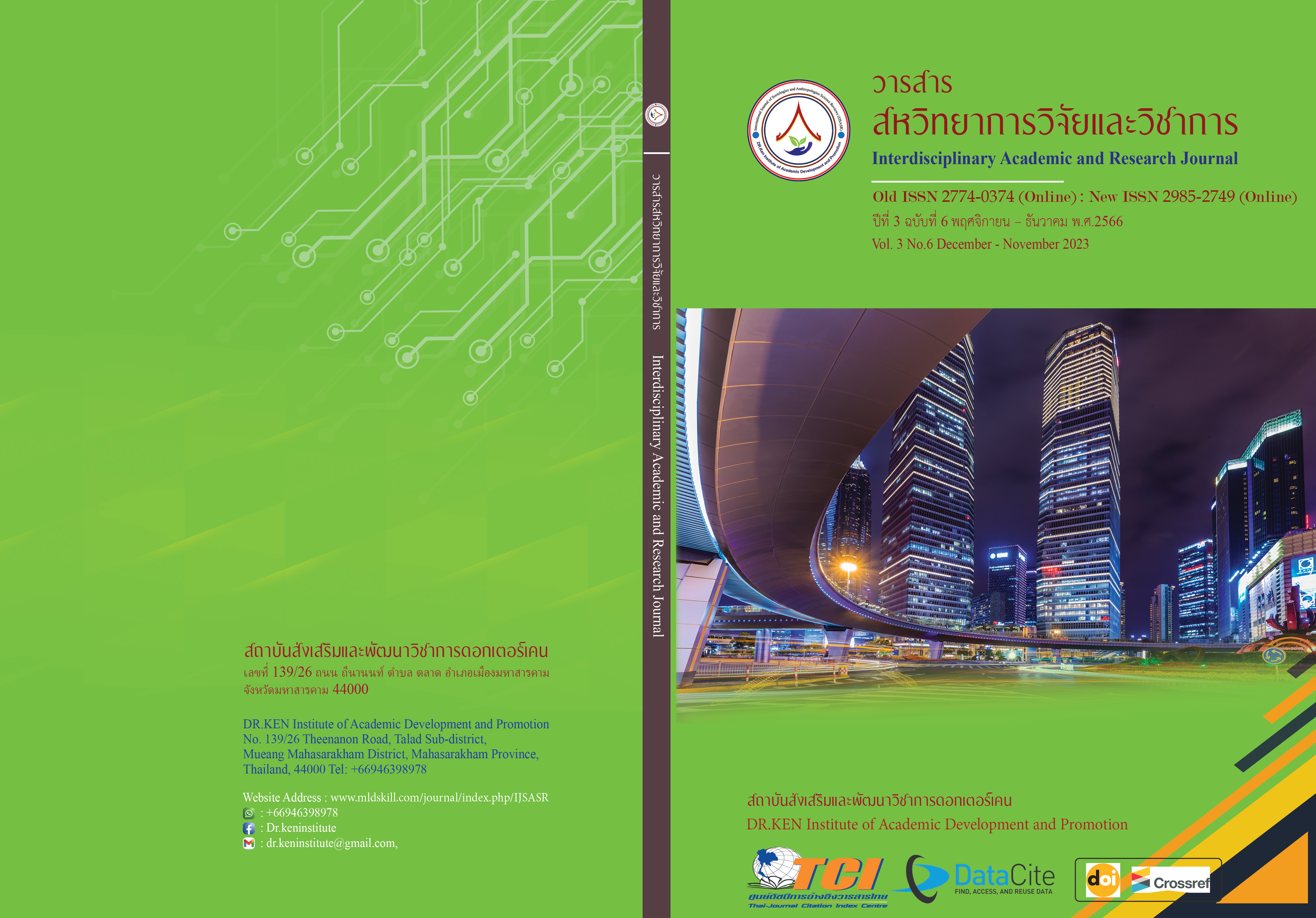Critical Success Factor of Online Learning of Private University in the era of COVID-19
DOI:
https://doi.org/10.60027/iarj.2023.266167Keywords:
Successful; , Online Learning; , LecturerAbstract
Background and Aims: In 2019, China found a Virus. It was later named “COVID-19”, short for “Coronavirus Disease Starting in 2019”. The purposes of this research were: 1) to study the characteristics of private university students who succeeded in online learning in the era of COVID-19; 2) To study the level of critical success factors for online learning at private universities in the era of COVID-19. 3) To find out the success factors of online learning during the COVID-19 outbreak.
Methodology: This study was quantitative in nature. The purposive sampling method was used to select 225 university students who were recruited via the Internet. Questionnaires were used to collect data. The data received were calculated and analyzed using descriptive statistics and confirmatory factor analysis (CFA).
Results: The findings revealed that almost all of the characteristics of private university students who successfully studied online during the COVID-19 pandemic were female. With a GPA greater than 2.75, she prefers to use the Zoom application while studying at the Faculty of Business Administration. on time 4 pm - 8 pm. and level of opinion were teacher factors with a chi-square of 2/df = 1.21, P = 0.815, GFI = 0.989, AGFI = 0.966, NFI = 0.978, IFI = 0.988, CFI = 0.984, RMR = 0.003, RMSEA = 0.012, and each of these variables were consistent with the empirical data.
Conclusion: In summary, the research underscores that successful online learning among private university students during the COVID-19 pandemic is associated with specific demographic and academic characteristics, a preference for certain study habits, and a pronounced emphasis on positive perceptions of instructor-related factors.
References
Almaiah, M.A., Al-Khasawneh, A., & Althunibat, A. (2020). Exploring the critical challenges and factors influencing the E-learning system usage during the COVID-19 pandemic. Educ. Inf. Technol. 25, 5261–5280.
Alqurashi, E. (2016). Self-efficacy in online learning environments: a literature review. Contemp. Issues Educ. Res. 9 (1), 45–52.
Baber, H. (2020). Determinants of students' perceived learning outcome and satisfaction in online learning during the pandemic of COVID-19. J. Educat. e-Learn. Res. 7 (3), 285–292.
Demuyakor, J. (2020). Coronavirus (COVID-19) and online learning in higher institutions of education: a survey of the perceptions of Ghanaian international students in China. Online J. Commun. Media Technol. 10, e202018.
Hostify. (2008). Blog. Retrieved from http://hostify.com/category/blogmarketing/.
Li, S.W., Wang, Y., Yang, Y.Y., Lei, X.M., & Yang, Y.F. (2020). Analysis of influencing factors of Anxiety and emotional disorders in children and adolescents during home isolation during the epidemic of novel coronavirus pneumonia. Chinese Journal of Child Health. 28 (1), 1–9.
Mote, R. (2020). COVID-19 corona virus. Faculty of Medicine, Ramathibodi Hospital Mahidol University.
Osmani, F. (2021). Analysis of Students' Satisfaction with virtual education at Medical Science University during the pandemic outbreak of COVID-19. Int. J. Assess. Tools Educat. 8 (1), 1–8.
Positioningmag. (2014). Mega digital marketing trend 2012. Retrieved on 22 February 2022 From http://www.positioningmag.com/magazine/details.aspx?id=93821.
Rajraksa, S. (2020). Covid 'Creates New Economic Normalization to a Turning Point 'Global Supply Chain. Retrieved on 22 February 2022 From https://www.bangkokbiznews.com/news/detail/875619.
The Information Center for COVID-19. (2022). Report of viral infection COVID-19. Retrieved on 22 February 2022. From https://www.youtube.com/watch?v=vW0NlOWFEBg.
Wanitbuncha, K. (2014). Structural equation modeling analysis by AMOS (1st Ed). Chulalongkorn University Press.
Zimmerman, W.A., & Kulikowich, J.M. (2016). Online learning self-efficacy in students with and without online learning experience. Am. J. Dist. Educ. 30 (3), 180–191.
Downloads
Published
How to Cite
Issue
Section
License
Copyright (c) 2023 Rattana Chaikalaya

This work is licensed under a Creative Commons Attribution-NonCommercial-NoDerivatives 4.0 International License.
Copyright on any article in the Interdisciplinary Academic and Research Journal is retained by the author(s) under the under the Creative Commons Attribution-NonCommercial-NoDerivatives 4.0 International License. Permission to use text, content, images, etc. of publication. Any user to read, download, copy, distribute, print, search, or link to the full texts of articles, crawl them for indexing, pass them as data to software, or use them for any other lawful purpose. But do not use it for commercial use or with the intent to benefit any business.
















.png)


